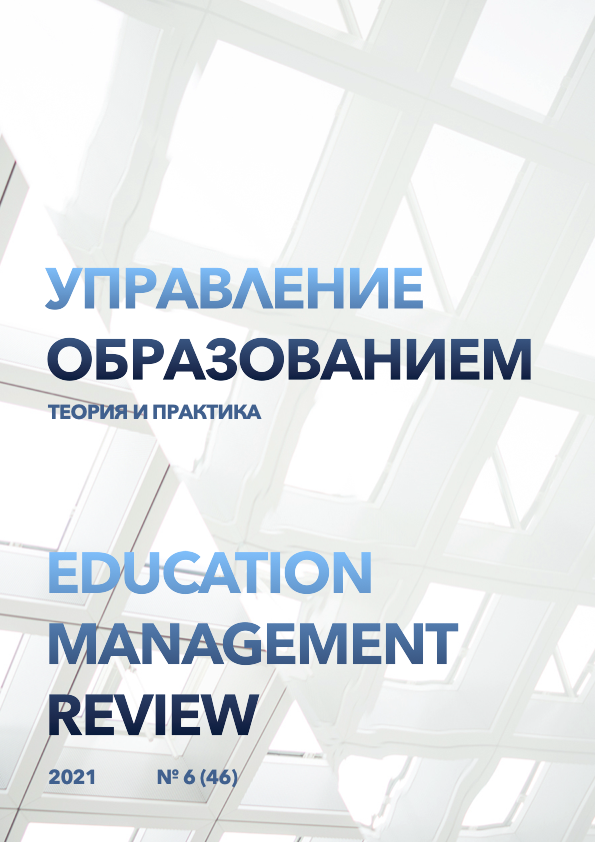The structure of education in the process of globalization of the world educational space
DOI:
https://doi.org/10.25726/g4069-4282-8334-sKeywords:
importance of education, needs, learning process, problems, skillsAbstract
In the modern world, it is difficult to overestimate the importance of education, because in the process of learning, students receive not only certain knowledge and acquire specific skills, but also form their own worldview. The geopolitical and socio-economic conditions of the modern world determine the general problems of the education system: improving quality, accessibility, compliance with the social and economic needs of modernity. One of the key tasks of the world community is to ensure an inclusive, fair, high-quality education for every inhabitant of the planet. This issue is especially relevant for developing countries, where the literacy rate of the population lags behind global indicators. For the countries of the Arab world, also a few decades ago, the solution of the problem of ensuring the literacy of the population was paramount. However, thanks to a wellstructured policy in the field of education development, significant results have been achieved in a relatively short period of time. Today, in most countries of the Arab world, education meets international standards and covers a large part of the population. However, due to certain ethno-regional peculiarities, there are a number of problems that need to be solved at the moment, namely: the issue of gender and age inequality, ensuring free secondary and higher education for all, preserving the influence of national traditions on education under the influence of the globalization process.
References
Feeley, A., Feeley, I., Healy, E., Sheehan, E., & Hehir, D. J. (2022). Acquisition of Surgical Skills in Medical Students via Telementoring: A Randomized Control Trial. Journal of Surgical Research, 270, 471– 476. https://doi.org/10.1016/j.jss.2021.10.007
Finlay, M. J., Tinnion, D. J., & Simpson, T. (2022). A virtual versus blended learning approach to higher education during the COVID-19 pandemic: The experiences of a sport and exercise science student cohort. Journal of Hospitality, Leisure, Sport and Tourism Education, 30. https://doi.org/10.1016/j.jhlste.2021.100363
Ghavifekr, S., & Wong, S. Y. (2022). Technology leadership in Malaysian schools: The way forward to education 4.0 – ICT utilization and digital transformation. International Journal of Asian Business and Information Management, 13(2). https://doi.org/10.4018/IJABIM.20220701.oa3
Giacomazzi, M., Fontana, M., & Camilli Trujillo, C. (2022). Contextualization of critical thinking in sub-Saharan Africa: A systematic integrative review. Thinking Skills and Creativity, 43. https://doi.org/10.1016/j.tsc.2021.100978
Hassani, H., Ershadi, M. J., & Mohebi, A. (2022). LVTIA: A new method for keyphrase extraction from scientific video lectures. Information Processing and Management, 59(2). https://doi.org/10.1016/j.ipm.2021.102802
Jangra, S., & Toshniwal, D. (2022). Efficient algorithms for victim item selection in privacy- preserving utility mining. Future Generation Computer Systems, 128, 219–234. https://doi.org/10.1016/j.future.2021.10.008
LEAL, M. S., GÓMEZ, M. L. O., & TOMA, R. B. (2022). Conceptual construction of global competence in education. Teoria de La Educacion, 34(1), 83–103. https://doi.org/10.14201/TERI.25394
Milheiro Silva, A., García-Docampo, L., Marques Silva, S., & del Mar Lorenzo-Moledo, M. (2022). Challenges of the border educational centers of Portugal and Spain towards the «21st century skills» [Retos de los centros educativos transfronterizos de portugal y EspaÑA a favor de las «competencias Para El Siglo Xxi»]. Teoria de La Educacion, 34(1), 167–187. https://doi.org/10.14201/TERI.25682
Salgado, L. S., Campos, L. N., Yabrude, A. T. Z., Buda, A. M., Amaral, V. F., Ribeiro, L. L. P. A., … Alonso, N. (2022). Assessing Brazilian Medical Student Awareness About Global Surgery: A Survey- Based Study. Journal of Surgical Research, 271, 14–23. https://doi.org/10.1016/j.jss.2021.10.014
Sapkota, S., Rijal, S., & Karn, M. (2022). Neurosurgery in Nepal: Past, Present, and Future. World Neurosurgery, 158, 100–105. https://doi.org/10.1016/j.wneu.2021.10.162
Ung, L.-L., Labadin, J., & Mohamad, F. S. (2022). Computational thinking for teachers: Development of a localised E-learning system. Computers and Education, 177. https://doi.org/10.1016/j.compedu.2021.104379
Wang, Z. (2022). Modern social dance teaching approaches: Studying creative and communicative components. Thinking Skills and Creativity, 43. https://doi.org/10.1016/j.tsc.2021.100974
Xu, J. (2022). A profile analysis of online assignment motivation: Combining achievement goal and expectancy-value perspectives. Computers and Education, 177. https://doi.org/10.1016/j.compedu.2021.104367
Xu, S., Shonchoy, A. S., & Fujii, T. (2022). Assessing gender parity in intrahousehold allocation of educational resources: Evidence from Bangladesh. World Development, 151. https://doi.org/10.1016/j.worlddev.2021.105730
Yin, X., & Zong, X. (2022). International student mobility spurs scientific research on foreign countries: Evidence from international students studying in China. Journal of Informetrics, 16(1). https://doi.org/10.1016/j.joi.2021.101227




